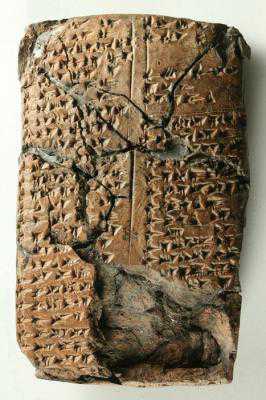Top 10 guide to Çukurcuma, Istanbul
Istanbul’s antiques district, Çukurcuma, is now home to novelist Orhan Pamuk’s new Museum of Innocence – explore its winding streets with our top 10 guide to its shops, cafes and restaurants
Know a great place in Çukurcuma? Add it to the comments below
guardian.co.uk
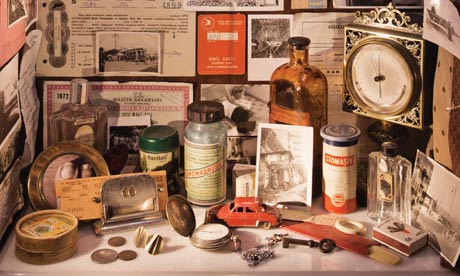
Museum of Innocence
This wine-red 19th-century townhouse has become part-museum, part-art installation, part-novel brought to life. Pamuk conceived the project as he was writing the novel of the same name and he’s filled 83 wooden boxes with collected and commissioned works of art relating to each chapter – items the characters would have seen, worn, or owned over the last decades of the 20th century when the novel is set. But it’s not just a study of obsession and the mementos of a doomed love affair between the novel’s protagonists. With the aid of cutting-edge technology blurring fiction and documentary, it’s a chronicle of Istanbul at a time of great cultural changed. Click through our picture gallery of the museum here.
• Çukurcuma Caddesi, Dalgiç Çikmazi 2, +90 212 252 9738, masumiyetmuzesi.org, open Tuesday-Thursday, Saturday and Sunday 10am-6pm, Friday 10am-9pm, entrance 25TL (about £8.50) for adults, £3.50 for students
The Works: Objects of Desire
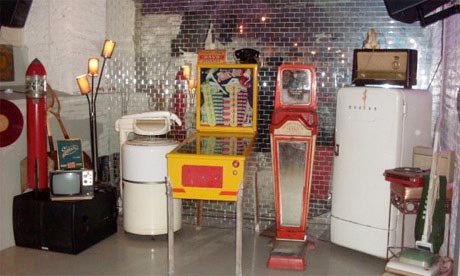 As the sign says, this bric-a-brac emporium is aimed at “the slightly deranged collector seeking identifiable memories”, and it’s a sensory overload for even the most seasoned forager. With stock spilling out on to the pavement it’s clear that the owner of this extraordinary shop, A. Karaca Borar, is a consummate collector. In the house-cum-shop’s bathroom, you might find a marble Ottoman washbasin next to a mass of rubber ducks. Vintage clothes are stacked alongside collections of toys, plastic gnomes, wooden hands and other miscellany. If you can’t find it here, it probably doesn’t exist.
As the sign says, this bric-a-brac emporium is aimed at “the slightly deranged collector seeking identifiable memories”, and it’s a sensory overload for even the most seasoned forager. With stock spilling out on to the pavement it’s clear that the owner of this extraordinary shop, A. Karaca Borar, is a consummate collector. In the house-cum-shop’s bathroom, you might find a marble Ottoman washbasin next to a mass of rubber ducks. Vintage clothes are stacked alongside collections of toys, plastic gnomes, wooden hands and other miscellany. If you can’t find it here, it probably doesn’t exist.
• Faikpaşa Caddesi 6/1, +90 212 252 2527, fleaworks.com, open daily 11am-6pm (closed 13-17 June), prices from around £3.50
A La Turca
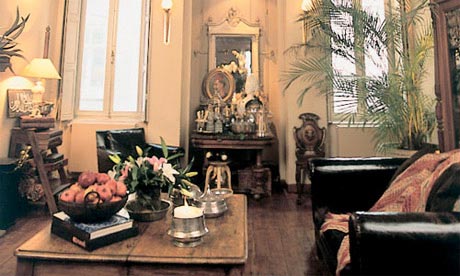 A visit to Erkal Aksoy’s A La Turca kilim house is like wandering around a delightful ethnographic museum – with price tags. A hoarders’ heaven, this beautiful four-storey townhouse is filled with his global finds, displayed with the know-how of a skilled interior designer. There’s plenty to covet if you can afford it and it’s worth exploring even if you can’t: the colourful, tightly woven antique kilims, rolled up and stored on bookshelves, the Ottoman embroidery draped over a chair (which is also for sale) and countless decorative objects. Don’t forget to head down into the basement for stacks of green-glazed Tokat pottery.
A visit to Erkal Aksoy’s A La Turca kilim house is like wandering around a delightful ethnographic museum – with price tags. A hoarders’ heaven, this beautiful four-storey townhouse is filled with his global finds, displayed with the know-how of a skilled interior designer. There’s plenty to covet if you can afford it and it’s worth exploring even if you can’t: the colourful, tightly woven antique kilims, rolled up and stored on bookshelves, the Ottoman embroidery draped over a chair (which is also for sale) and countless decorative objects. Don’t forget to head down into the basement for stacks of green-glazed Tokat pottery.
• Faikpaşa Caddesi 4, +90 212 245 2933, alaturcahouse.com, open Monday-Saturday 10.30am-7.30pm and by appointment, prices on request
Hall Istanbul
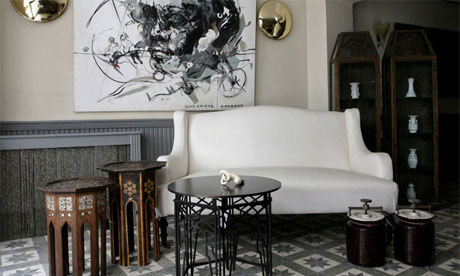 New-Zealand born interior designer, Christopher Hall, has been living in Istanbul for the past 12 years. His eponymous shop – open since 2003 – mixes antiques with his own contemporary designs. He works in stone, iron, steel, glass, linen, cotton, wool and wood and is inspired by the wares of the neighbouring junk shops, the influence of the city and Islamic form. You’ll find some of his bronze and marble furniture in this chic showroom, along with more portable objets d’art, lighting, ceramics and textiles. Most pieces are beyond the pocket of the average visitor but a few small decorative objects start from around £30.
New-Zealand born interior designer, Christopher Hall, has been living in Istanbul for the past 12 years. His eponymous shop – open since 2003 – mixes antiques with his own contemporary designs. He works in stone, iron, steel, glass, linen, cotton, wool and wood and is inspired by the wares of the neighbouring junk shops, the influence of the city and Islamic form. You’ll find some of his bronze and marble furniture in this chic showroom, along with more portable objets d’art, lighting, ceramics and textiles. Most pieces are beyond the pocket of the average visitor but a few small decorative objects start from around £30.
• Faikpaşa Caddesi, +90 212 292 9590, hallistanbul.com, open Monday 2pm-7pm, Tuesday-Saturday 10am-7pm
Leyla Seyhanli
This wardrobe-sized boutique is piled floor to ceiling with an eccentric collection of vintage clothes, hats and hat boxes, handbags, wall hangings and embroidered textiles. A good rummage will reveal Ottoman-era silk pillowcases hand sewn with gilded thread, embroidered linen towels and Anatolian velvet table cloths, ornate traditional kaftans, turn-of-the-century silk blouses and 1950s taffeta party dresses. Always the genuine article, it’s become a popular stop for collectors and Seyhanli also lends costumes and accessories to the Turkish film industry.
• Altipatlar Sokak 6, +90 212 293 7410, open Monday-Saturday 10.30am-6.30pm, prices range from around £30 to £160
Leila Butik
Virtually everything in this small, whitewashed boutique is a quirky, fun, one-off design. Different designers supply the store with everything from fascinators to ornately decorated heels, cute little prom dresses to hand-printed T-shirts, crazily patterned tights and leggings to customised straw hats. It also stocks jewellery from Anatolian-influenced crocheted necklaces to plastic brooches and, for men, vintage sunglasses and unique trilbies.
• Hayriye Caddesi 18, +90 212 245 3365, leilabutik.com, open Monday-Saturday 11am-8.30pm, prices from around £5
Holy Coffee
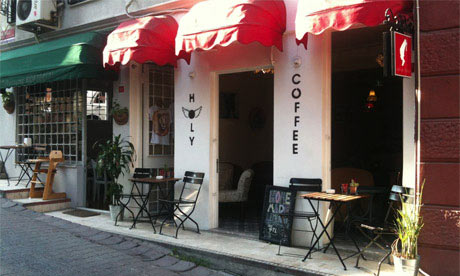 With its sofas, armchairs, bookshelves and art-covered walls, a Holy Coffee break is like stepping into someone’s living room. Just a year old, it’s become the cafe of choice for locals, ex-pats and visitors thanks to its relaxed vibe and its hands-on Turkish owner, Arzu, who is more than happy to offer her tips on the city. The smell of freshly baked cakes and biscuits wafts from the kitchen, and soups, sandwiches and salads are also on offer. Drink the homemade bitter lemonade alfresco on a hot day – the coffee is excellent too.
With its sofas, armchairs, bookshelves and art-covered walls, a Holy Coffee break is like stepping into someone’s living room. Just a year old, it’s become the cafe of choice for locals, ex-pats and visitors thanks to its relaxed vibe and its hands-on Turkish owner, Arzu, who is more than happy to offer her tips on the city. The smell of freshly baked cakes and biscuits wafts from the kitchen, and soups, sandwiches and salads are also on offer. Drink the homemade bitter lemonade alfresco on a hot day – the coffee is excellent too.
• Hacioğlu Sokak 1B, +90 212 243 6869, Holy Coffee’s facebook page, open Monday-Saturday 10am-8pm
Cukurcuma Köftecisi
Traditional Turkish fare is served at this family-run lunch venue next door to Holy Coffee, complete with wooden tables and chairs and walls adorned with kitsch art and portraits of Atatürk. It’s a paradise for carnivores, with all manner of köfte (meatballs) and şiş (skewers) sizzling on the grill, served with a carb overload of chips and Turkish pilaf rice. But there are also daily specials such as soups, stews and freshly made salads. Fridays and Saturdays are fry days, when you can sample the sublime courgette, aubergine and cauliflower fritters.
• Hacioğlu Sokak 1A, +90 212 245 0833, cukurcumakoftecisi.com, open Monday to Saturday for lunch and dinner
Münferit
Award-winning interior design duo, Seyhan Özdemir and Sefer Cağlar – better known as Autoban – gave Münferit a retro feel with marble-top tables, smoked-glass mirrors and wood panelling. But the vintage aesthetic belies a menu filled with thoroughly modern meze, such as black couscous topped with sprigs of grilled calamari, baby octopus skewers and, for dessert, the irresistible sage ice-cream with plum sauce. Wash it down with some thrice-distilled Beylerbeyi Raki, Turkey’s potent anise-flavoured spirit produced by the owner’s family, or one of the inventive martinis and mojitos. On balmy evenings, you can dine alfresco on the terrace before it’s transformed into a dance space.
• Yeni Carşi Caddesi 19, +90 212 252 5067, munferit.com.tr, open daily 7pm-2am, main courses around £14
House Hotel Galatsaray
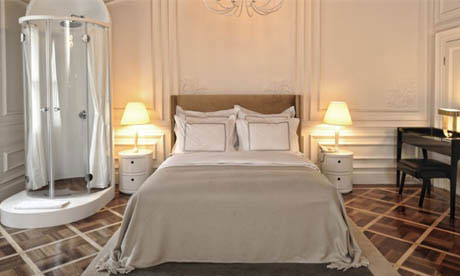 The first hotel project from the owners of Istanbul’s trendy House Café chain has turned a dilapidated 19th-century building into a design buff’s dream with help from Autoban. Spread over four floors, the 20 rooms combine old-world charm with innovative design – lofty ceilings, ornate plasterwork and polished parquet floors, with sleek, custom-made furniture and rainforest shower cubicles in the middle of the bedroom. The top-floor lounge bar, with its open fire, large brown Chesterfields and panoramic views is the perfect place to relax post-sightseeing.
The first hotel project from the owners of Istanbul’s trendy House Café chain has turned a dilapidated 19th-century building into a design buff’s dream with help from Autoban. Spread over four floors, the 20 rooms combine old-world charm with innovative design – lofty ceilings, ornate plasterwork and polished parquet floors, with sleek, custom-made furniture and rainforest shower cubicles in the middle of the bedroom. The top-floor lounge bar, with its open fire, large brown Chesterfields and panoramic views is the perfect place to relax post-sightseeing.
• Firuzağa Mahallesi, Bostanbaşi Caddesi 19, +90 212 252 0422, thehousehotel.com/the-house-hotel-galatasaray, from €139 for a deluxe suite on a B&B basis. If you prefer the idea of an apartment, studios with The House Apart start from €80 per night and one-bedroom apartments start from €100, including two breakfasts at The House Café on Istiklal Caddesi





